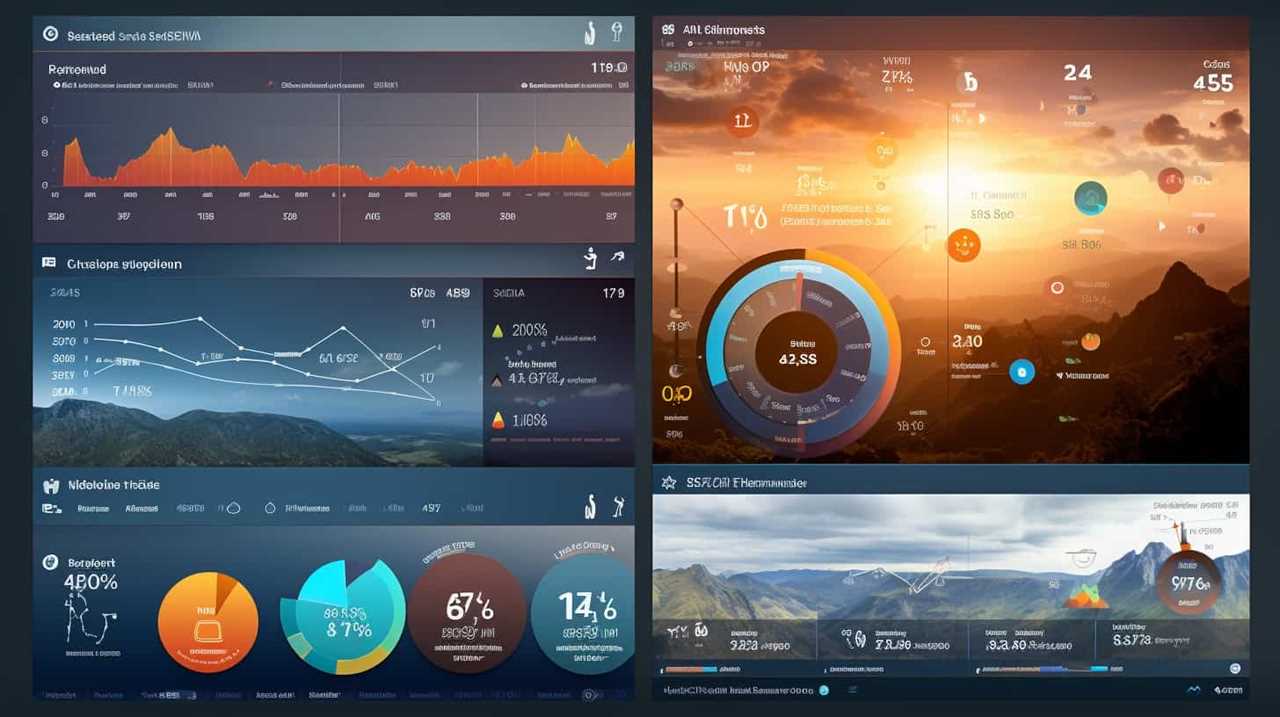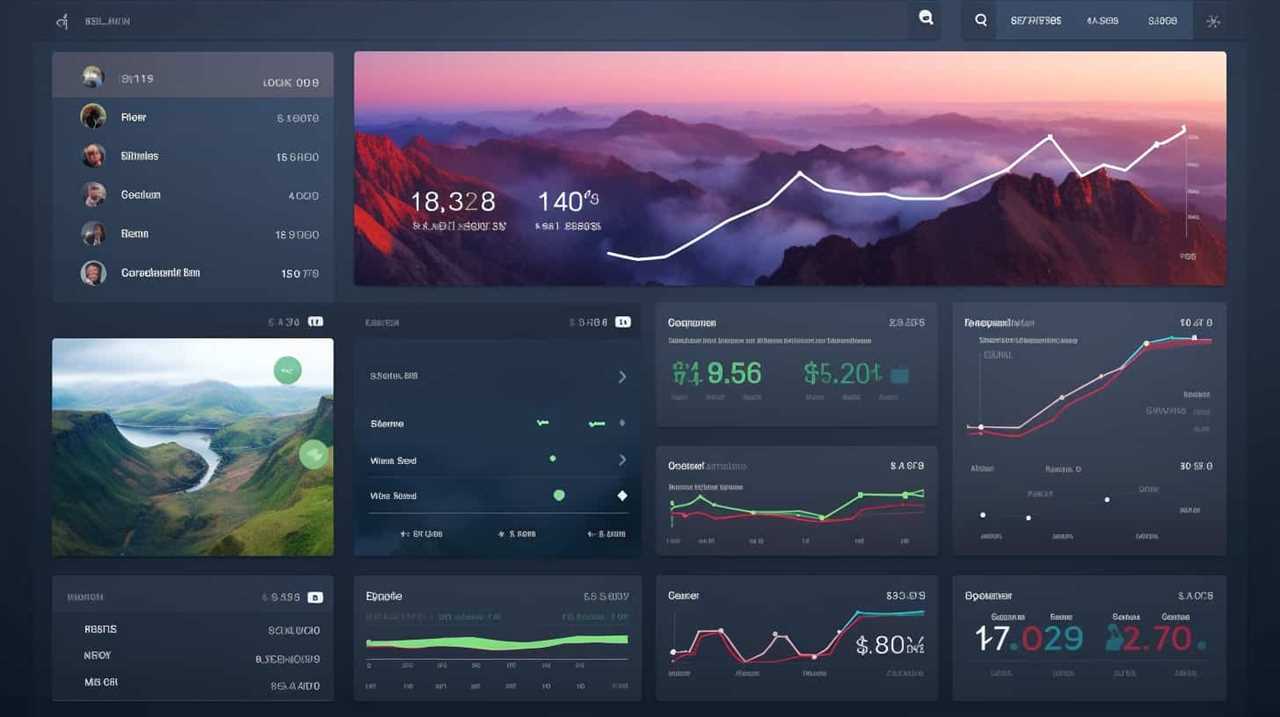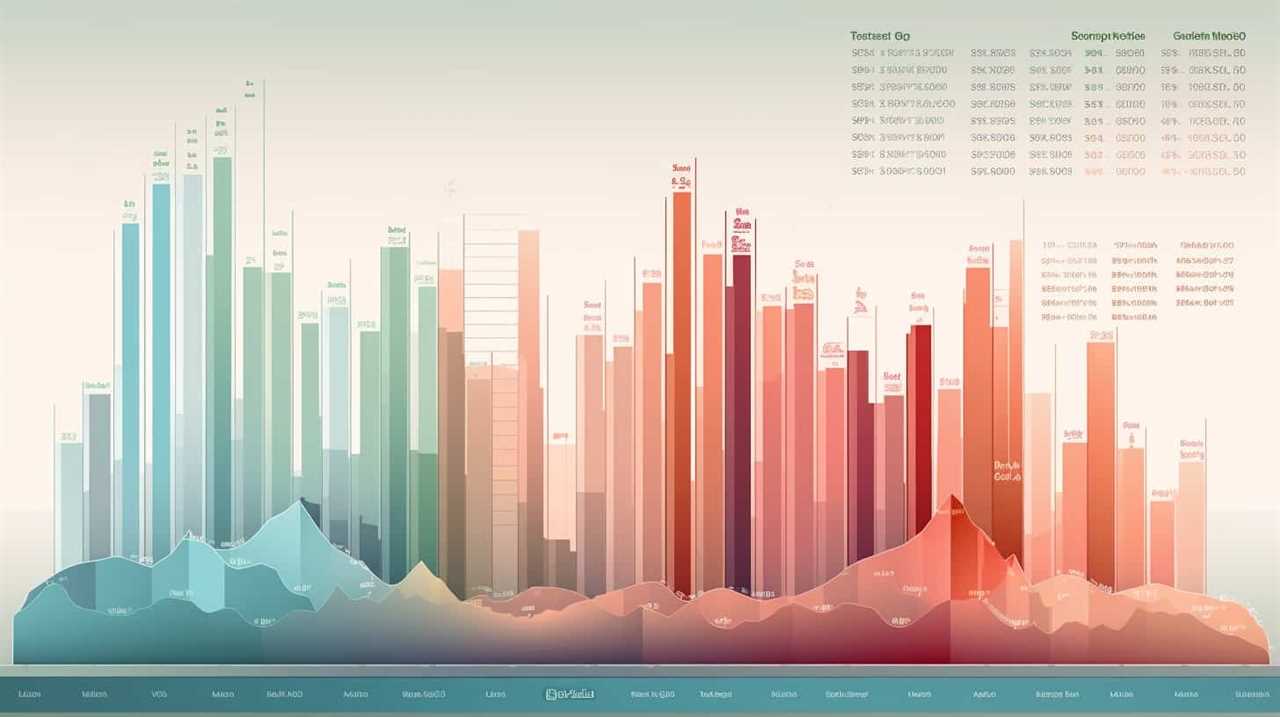We are all aware of the impact SEO has on increasing website traffic, but have you considered how implementing a comprehensive SEO strategy can improve your website’s effectiveness even more?
By optimizing on-page elements, enhancing user experience, and leveraging technical SEO, you can skyrocket your online presence.
In this guide, we’ll dive deep into the key factors that contribute to website performance and provide you with actionable insights to help you master the art of holistic SEO.
Get ready to boost your website’s performance like never before.

Key Takeaways
- Holistic SEO incorporates various strategies and techniques to improve search engine rankings and increase organic traffic.
- Website performance is crucial for user engagement, search engine rankings, and conversion rates.
- Factors such as website speed, mobile optimization, on-page elements, and user experience play a significant role in website performance.
- Technical SEO techniques, such as optimizing CSS and JavaScript files, leveraging browser caching, and implementing a CDN, are essential for enhancing website performance.
Understanding Holistic SEO
To fully optimize our website’s performance, we must first gain a comprehensive understanding of holistic SEO. This approach encompasses various strategies and techniques that work together to improve search engine rankings and increase organic traffic.
Two key components of holistic SEO are the importance of content strategy and link building strategies. A well-crafted content strategy is crucial for attracting and engaging our target audience. By creating high-quality, relevant content that aligns with our audience’s needs and interests, we can establish authority in our niche and improve our website’s visibility in search results.
Link building is another essential aspect of holistic SEO. By acquiring high-quality backlinks from reputable websites, we can enhance our website’s credibility and authority in the eyes of search engines. This, in turn, can lead to higher search rankings and increased organic traffic.
Understanding the importance of content strategy and implementing effective link building strategies are key factors for optimizing website performance. By focusing on these areas, we can improve our website’s visibility, increase organic traffic, and ultimately achieve our goals.

Key Factors for Website Performance
We frequently prioritize key factors for website performance to enhance our overall search engine rankings and increase organic traffic. When it comes to website performance, two critical factors that can’t be ignored are website speed and mobile optimization. These factors play a crucial role in providing a positive user experience and improving search engine visibility.
Here’s why they matter:
- Website Speed: Slow-loading websites not only frustrate users but also deter search engines from crawling and indexing your pages. Optimizing your website’s speed can significantly improve user engagement and decrease bounce rates.
- Mobile Optimization: With the majority of internet users accessing websites through mobile devices, it’s imperative to have a mobile-friendly website. Mobile optimization ensures that your website is accessible and displays correctly on various screen sizes, improving user experience and search engine rankings.
Optimizing On-Page Elements
When optimizing website performance, it’s important to focus on optimizing on-page elements. One crucial aspect to consider is improving page speed. Studies have shown that a slow-loading website can lead to higher bounce rates and lower conversions.
To improve page speed, it’s recommended to optimize images by compressing them without compromising quality, minify CSS and JavaScript files, and leverage browser caching.

Another important on-page element to optimize is meta tags. Meta tags provide information about a webpage to search engines and users. By including relevant keywords in the meta title and description tags, you can improve visibility in search engine results and attract more organic traffic.
Additionally, optimizing meta tags can enhance click-through rates and user engagement.
Enhancing User Experience
Improving user experience is crucial for boosting website performance and can be achieved through various strategies. When it comes to enhancing user experience, there are three key areas that need attention:
- Improving navigation: A well-designed and intuitive navigation system allows users to easily find the information they’re looking for. By organizing content in a logical manner and utilizing clear labels and menus, users can quickly navigate through your website, reducing frustration and improving their overall experience.
- Reducing page load time: Slow-loading pages can lead to high bounce rates and decreased user satisfaction. Optimizing page load time by minimizing image sizes, leveraging browser caching, and optimizing code can significantly improve the user experience and keep visitors engaged.
- Implementing responsive design: With the increasing use of mobile devices, it’s crucial to ensure that your website is responsive and mobile-friendly. By providing a seamless browsing experience across different devices, you can cater to a wider audience and enhance user satisfaction.
By focusing on these strategies, you can create a user-friendly website that encourages engagement and drives better performance.

Now, let’s dive into the next section, where we’ll discuss the importance of leveraging technical SEO techniques.
Leveraging Technical SEO
To continue optimizing website performance, it’s important to delve into the realm of technical SEO.
Two key aspects of technical SEO that can significantly improve website performance are mobile optimization and page speed improvement.
Mobile optimization has become crucial in today’s digital landscape, as more and more users access websites through their mobile devices. Ensuring that your website is responsive and mobile-friendly not only improves user experience but also positively impacts search engine rankings.

Page speed improvement is another critical factor in technical SEO. Slow-loading websites not only frustrate users but also have a negative impact on search engine rankings. By optimizing code, compressing images, and minimizing HTTP requests, you can significantly enhance your website’s loading speed.
Frequently Asked Questions
How Can I Measure the Effectiveness of My Holistic SEO Efforts?
To measure the effectiveness of our holistic SEO efforts, we track the ROI and organic search rankings. By analyzing data and focusing on keywords, we can provide our audience with a data-driven, analytical approach that leads to mastery.
Are There Any Specific Tools or Software That Can Help Improve Website Performance?
Yes, there are specific tools and software available to help improve website performance. These include website performance tools and software for optimizing website speed, which can enhance user experience and boost search engine rankings.
What Are Some Common Mistakes to Avoid When Optimizing On-Page Elements?
When optimizing on-page elements, common mistakes to avoid include keyword stuffing and neglecting meta tags. These errors can negatively impact website performance and hinder search engine rankings.

How Can I Ensure a Seamless User Experience Across Different Devices and Platforms?
To ensure a seamless user experience across devices and platforms, we prioritize responsive design and cross-platform compatibility. By implementing these strategies, we guarantee that our website functions flawlessly and delivers optimal performance to our users.
What Are Some Advanced Technical SEO Strategies That Can Give My Website an Edge in Terms of Performance?
To give our website an edge in performance, we focus on advanced technical SEO strategies. We optimize website speed and improve server response time, ensuring a seamless user experience across devices and platforms.
What are some Technical SEO Techniques that can be used to Enhance Website Performance?
Technical seo techniques are fundamental for improving website performance. Optimize page speed through image compression, caching, and minifying code. Ensure proper indexing by submitting sitemaps and using robot.txt files. Enhance user experience through responsive design and mobile optimization. Implement structured data markup to help search engines understand your content. Technical SEO techniques play a crucial role in maximizing website performance.
How Can Holistic SEO Benefit Printmakers in Enhancing Their Craft Online?
Printmakers looking to enhance their craft online can benefit from holistic seo for printmakers. By optimizing their website and content, printmakers can increase their online visibility, reach their target audience, and attract potential customers. Holistic SEO encompasses various strategies such as keyword research, website optimization, content creation, and link building, which collectively contribute to improved online presence and increased sales for printmakers.
Conclusion
In conclusion, implementing holistic SEO strategies can greatly boost website performance.
According to recent studies, optimizing on-page elements and enhancing user experience can lead to a 20% increase in organic search traffic.

By leveraging technical SEO and focusing on key factors, such as website speed and mobile optimization, businesses can improve their online visibility and drive more targeted traffic to their site.
With data-driven and analytical approaches, holistic SEO can help businesses stay ahead in the competitive digital landscape.










